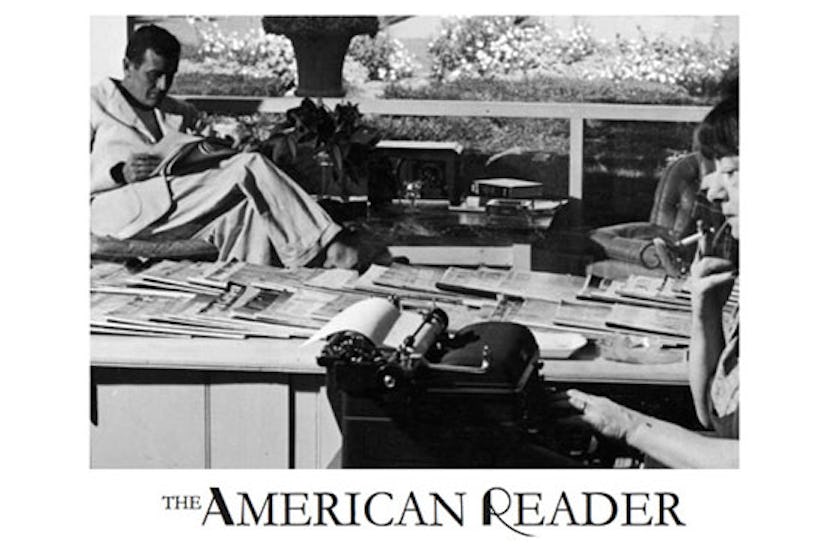New Lit’s On The Block
When launching a new magazine, it never hurts to have a glamorous face or two onboard as social ambassadors—but when launching a new literary publication, does that kind of allure also threaten to undermine...

When launching a new magazine, it never hurts to have a glamorous face or two onboard as social ambassadors—but when launching a new literary publication, does that kind of allure also threaten to undermine the seriousness of the mission? The editors of The American Reader, a new Harlem-based monthly (their website launched today) that boasts style-world mainstays Shala Monroque and Stephanie LaCava on its masthead, certainly don’t think so.
“Glamour is not necessarily a bad thing,” says Lacava, who serves as the title’s editor-at-large. “The social and literary worlds needn’t be mutually exclusive—just think of the days of Norman Mailer.”
“The social aspect will be important for us,” says editor-in-chief Uzoamaka Maduka. “It helps to make our passions part of the conversation.” Those passions are three-fold: literature, criticism, and translation. Every month, fiction editor Ben Marcus—the novelist and author of an infamous defense of experimental fiction in a 2005 issue of Harper’s—will curate a portfolio of stories, while translation portfolios will focus on emerging international talents and lesser-known works from established foreign writers. (The first issue, which drops October 1, will feature the stories of both young and established Russian writers; Pakistan, says Maduka, is up next).
But most importantly, The American Reader wants to project a youthful voice. “We were concerned that, for people our age,” explains Maduka, who is 24, “there wasn’t a space for the conversations my friends and I were having.”
It’s too early to tell what impact The American Reader will make in the literary landscape—its self-proclaimed mission is to provide a forum for literary-minded post-collegiate dialogue—but it’s worth keeping in mind that origin stories often define the lasting personalities of many major lit rags. Under George Plimpton, The Paris Review turned into a glamorous social swan; n + 1, meanwhile, became the serious brainchild of four Harvard grads, while the New York Review of Books—famously birthed into the void vacated by the all-powerful Times book review during 1963 printer strike—was the disenchanted rebel of its time.
The personality of The American Reader has aspects of all three of its far more illustrious predecessors, though ultimately it will, of course, have to make its own name. Frankly, that’s about all Maduka and her colleagues could ask for from the fickle and insular New York literary world. “Every generation has the responsibility to create for itself what it is they want,” she says. “We can’t just rely on the publications that already exist.”
Photos: courtesy of The American Reader